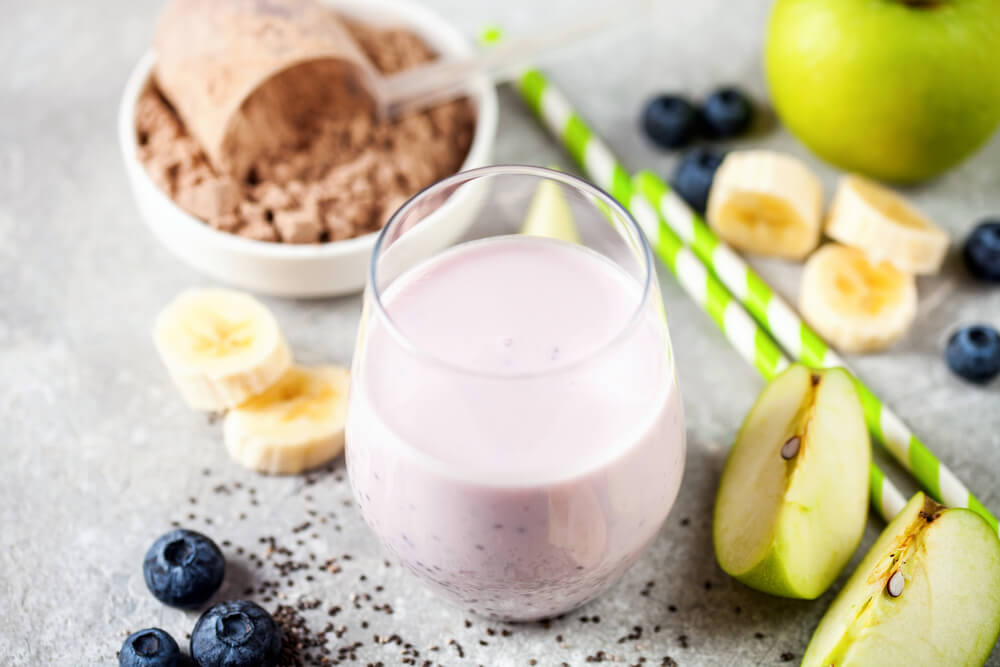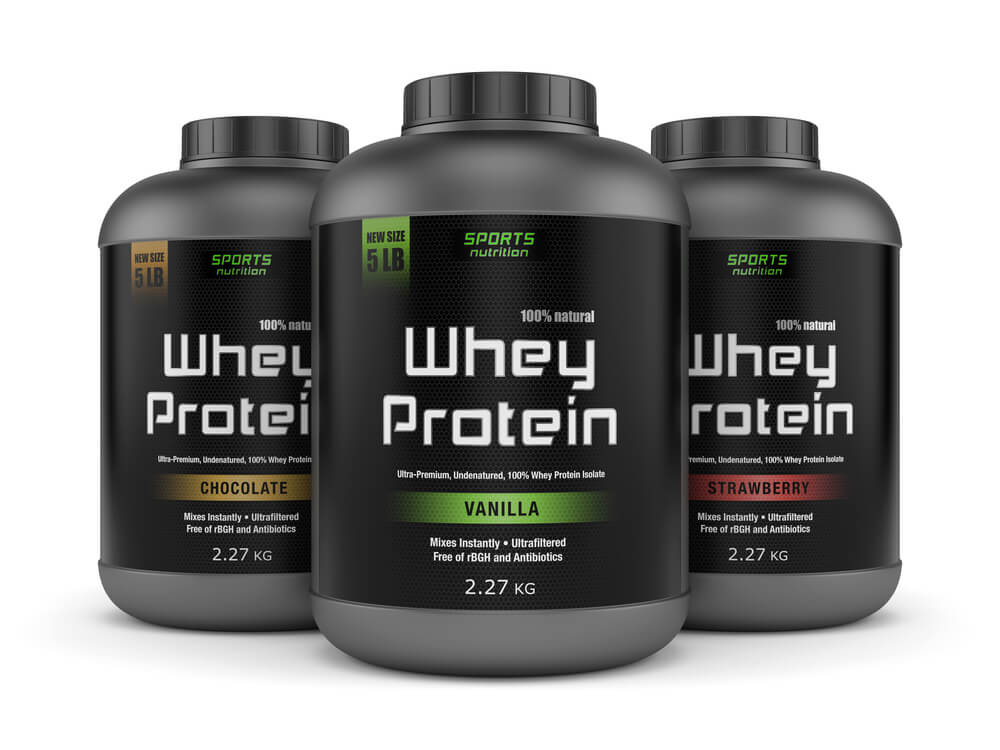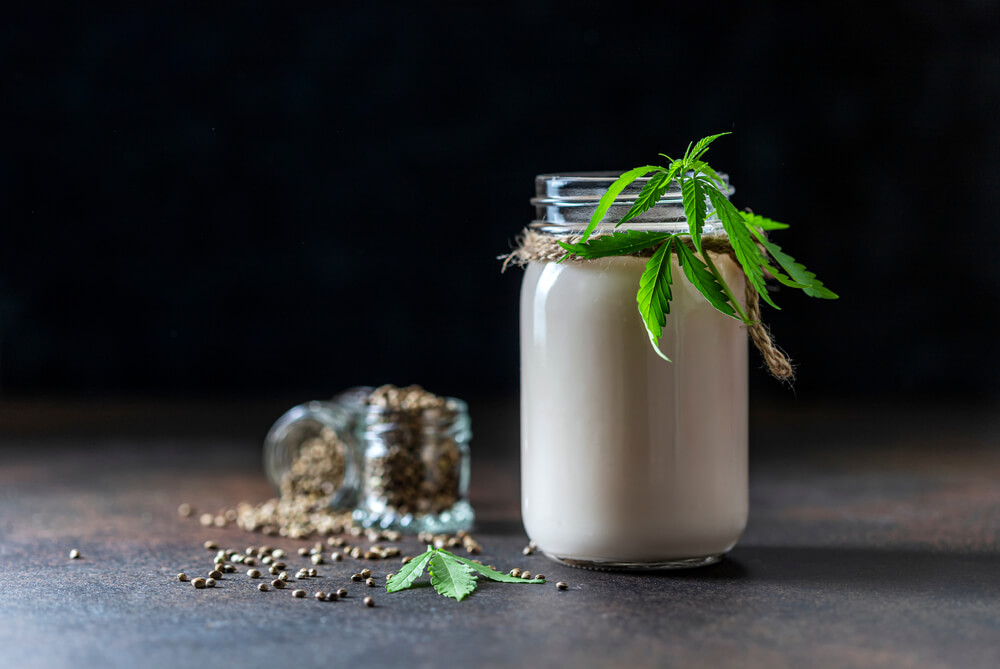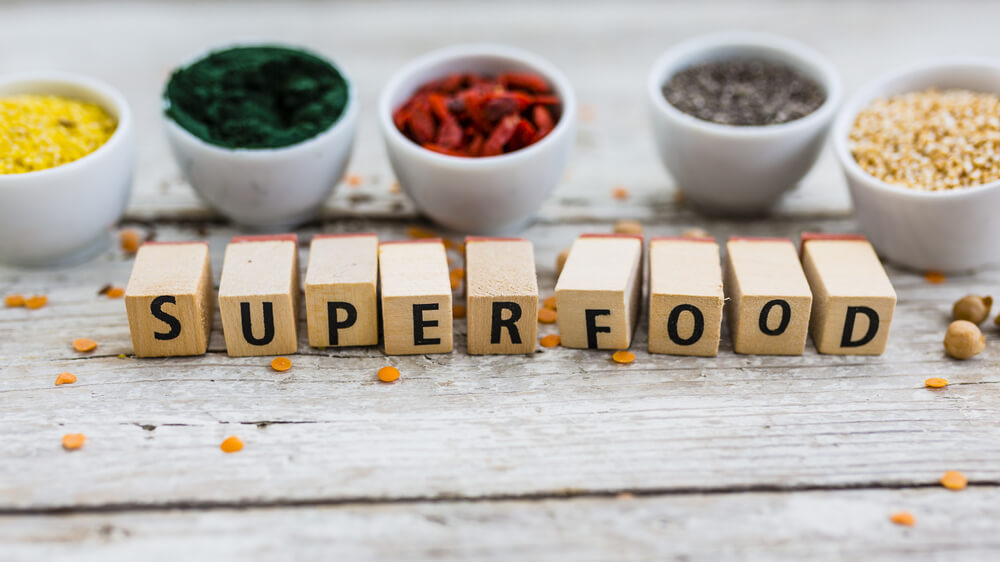
Your body needs protein. It uses the protein to repair damaged muscle tissue after a workout. It uses it for long term energy. It also has significantly fewer calories per gram than fat.
Eating enough protein during the day might be possible if you’re simply looking to maintain your body weight and just want to live a healthy lifestyle.
But what if you’re vegan, or if you’re looking to put on muscle mass following your workouts and the protein you’re eating on a daily basis isn’t cutting it?
Well, in these instances you will need to reach for protein powder.
This is a fast and effective way to add protein to your diet. It can work as a meal replacement and give you added energy when you need it most. With that said not all, protein powders are created equal.
Some protein powders may have ingredients you want to avoid or are considered unnatural. Here is what you need to look for and what you should know when it comes to all-natural protein powder.
Top Secrets To All Natural Protein
What is Whey

You’re going to find whey protein just about anywhere you go. It’s the least expensive protein option and, in reality, packs one of the lowest-calorie to grams of protein ratios out there, so it’s effective. Hard to beat cheap and effective, right? Well, before you move forward with it, you should first understand what whey actually is.
Whey
To understand whey, you need to understand milk. Milk is one of the most classic forms of protein. Back before whey bodybuilders were downing chickens and eggs and milk like you wouldn’t believe.
Thankfully science stepped in and made it a bit easier. But let’s focus specifically on milk. Milk is packed with protein. Two kinds of protein, to be exact. One is whey, the other is casein (you’ll also notice casein protein at your local supplement store).
Whey is a protein that can be stripped away from casein (Medical News Today, 2017). In fact, it is formed when the cheese is made. So your chocolate protein powder might not taste like it (at least let’s hope not), but it has more in common with cheese than with just about any other food group. With that said whey is relatively low in lactose.
There is still some in there, so if you are lactose intolerant you might react to it (unless it’s a mild allergy, in which case it might be small enough for your body to not have an issue). Whey also is considered a complete protein because it has all of the nine essential amino acids (more on this “complete” protein label in a bit).
So, is whey natural?
Yes, it is. There are no chemicals added to it. However, the company that sells the whey protein might add chemicals to it later. Or, depending on your personal beliefs, the kind of cow the milk comes from might have an impact as well.
It’s not vegan proof, but whey is natural, so there’s no need to stop using whey.
How Do I Make Whey Better?
Whey is a great, natural form of protein. But maybe you want to make sure you know what is going into the cow before you consider putting it’s milk into you. Nothing wrong with that.
The reality is, most whey protein comes from your standard cow, which means your standard store-brand milk.
If you like to go the organic milk route you’ll probably want to go the organic whey protein route as well. There are some organic whey protein brands out there.
Because the protein is still whey-based you will still be receiving the complete protein, and the calories per gram of protein should be about the same as well.
Ditching The Whey

Maybe you don’t want to go with a milk-based protein. It’s natural, but you don’t want something that comes from a cow, or an animal in general. This means you’ll not only want to skip over the whey protein but you’ll want to bypass the casein protein as well. Instead, you will want to go for something such as a pea, hemp, or even a grass protein.
Your first sign is to look on the label and to make sure it says it is vegan on it. If you have a gluten allergy you’ll want to look for a label that says it is gluten-free. Some proteins do have grain included (especially if it is a blended protein), so double-check with this.
The plant-based protein is just as natural as the whey. Outside of the protein source, the process of creating the protein is just about the same. With these, you will be replacing the milk-based protein with a plant.
Now, with that said, you will not be receiving what is known as the “complete” protein (at least not usually). This is because the nine essential amino acids are not going to be found within the majority of plants. These essential amino acids are also acids your body does not naturally produce.
Some proteins, especially those found in ancient grains (like quinoa) will have the complete protein makeup. In other words, it is possible to obtain the complete protein makeup somewhere else, it just won’t be packed in with the proteins you’re consuming if you’re opting for a protein that isn’t derived, in some form, from an animal.
Is Complete Protein A Big Deal?

Is there a big deal with this?
After all, 30 grams of protein is 30 grams of protein, right?
Well, yes and no. It kind of depends on what you want the protein for. You might notice, when shopping around in the health and supplement section of your grocery store, a selection of products labeled BCAA, or branch chain amino acids. These are essential amino acids that are especially beneficial both during and after a workout.
You see, when you work out your body you will break down the muscle tissue. The essential amino acids will then fire up and help repair your body faster. Basically, it improves how your body uses the protein by directing the protein to the necessary locations. BCAA is one of the best post-workout supplements you can take if you want to put on muscle mass.
And that brings us back to the benefit of complete proteins.
Maybe you’re opting for a plant-based protein powder that doesn’t have the complete protein. Is it a big deal?
If you want to put on muscle size it might take a little longer, simply because some of the protein is not directed to the muscle tissue in need as expertly as it might be with the complete proteins and amino acids. You can make up for this by consuming more protein, or by really pumping up your ancient grain intake, although both of these options will boost your calorie intake and make it more difficult to shed pounds and pack on muscle.
Ultimately, it is your decision and your call with the kind of protein you go for.
If you don’t want to use an animal protein then there are plenty of options out there. Just know, when it comes to packing on mass and growing your muscle larger, your best option is likely to use a whey-based protein (Piedmont Health).
Making Up For The Loss Of Complete Proteins
This is where things can get a little tricky. It might be best to just accept your dietary restrictions won’t allow you to consume enough complete proteins in powder form and opt for the plant-based powder. You can try to make it up, but it will get sticky.
Why is that?
Well, complete proteins are obviously important to you because you’re trying to put on muscle mass (if you’re not, you can skip this entire section as it doesn’t apply). So, you consume the plant-based protein, and now want ways to boost the complete proteins.
You can do that with soy products, flaxseed, and nuts. There’s just one problem with this. These particular foods will decrease the amount of testosterone in your system (Healthline, 2018).
You need testosterone in your body in order to build the kind of muscle mass you’re looking for. So now you’re in need of a testosterone booster, and this just opens up another can of worms. You’ll keep taking one thing to make up for the lack of something else.
If you want to go down that road you can, but we highly recommend either using the whey protein with complete proteins or shrug your shoulders, accept plant-based proteins won’t have the complete impact, and move along (if not, you end up like the cartoon character in the hull of a leaking ship, putting one finger into a leak only to have another one form).
Not Comfortable With The Sweetener

Perhaps you’ve been looking at proteins and have noticed that most have some kind of sweetener element. This is done to help, well, make the protein powder taste like, well, something.
Because whether you’re drinking whey or pea or a combination of proteins, those foods, when broken down and served in powder form, isn’t all that appealing for the taste.
At least the taste for most people. To help improve upon that the majority of manufacturers will add some sugar or sweetener to the protein in order to improve the taste (this is, in reality, where a good amount of the carbs within the protein powder comes from).
The sweetener is minimal, as the manufacturers still want to maintain a low calorie to protein count, but it’s there all the same.
If you want to remove the sweetener from your protein you’ll need to find something labeled as “raw protein.” This means the protein hasn’t been sweetened or adjusted.
It has been processed down into a powder form, but other than that, you’re getting pure protein. It won’t have the sweetener or sugar, but that will also lower the carb count as well as the calories.
It is, realistically, the healthiest option when considering a protein powder. It’s just up to you to decide whether or not it’s something you’d enjoy to drink or not. Perhaps you’d get accustomed to it, or maybe you’d be able to make it taste good enough with your own recipe (spices like cinnamon can help).
Ultimately that’s your call, but if you want to go as full natural as possible, always shop around for “raw protein” and make sure to read the label to make sure it really is just raw ingredients.
Your local health food store will likely carry a protein like this. Some also sell it in a bulk form so you can buy up as much or as little as possible. If it’s your first time with raw protein powder we highly recommend getting a small sample size.
There are those who swear by this kind of protein, and yet there are others who just can’t enjoy it. The small sample makes it easier to decide, and worst comes to worst you can always blend it in with your other protein powders.
In Conclusion
There is a protein option available for you. It doesn’t matter your diet or how much protein you’re looking to consume. With so many options out there you will always find a protein that is right for you. All you need to do is check.
Sometimes the nutrition facts printed on the back of a supplement can be a bit challenging to understand. With this information, you should at least be able to determine what proteins are natural and what proteins come with ingredients you’ll want to stay clear of. Most importantly, you should also test out the proteins.
Don’t buy the massive, bulk size of new protein right away. Go with something smaller and see how your body reacts. This will allow you to tweak and tinker with your proteins until you find one that works best for you, your budget, and your body.
-Terry Asher
Terry Asher
Latest posts by Terry Asher (see all)
- Better Family – Product Review Liquid Daily 2 oz - Dec 16, 2024
- Post-Workout Recovery: The Key to Optimal Performance - Nov 25, 2024
- Pre-Workout Supplements – Everything You Need To Know - Nov 18, 2024











[…] Source link […]
[…] This article was originally published by Gymjunkies.com. Read the original article here. […]
You should at least be able to determine what proteins are natural and what proteins come with ingredients you will want to stay clear of.